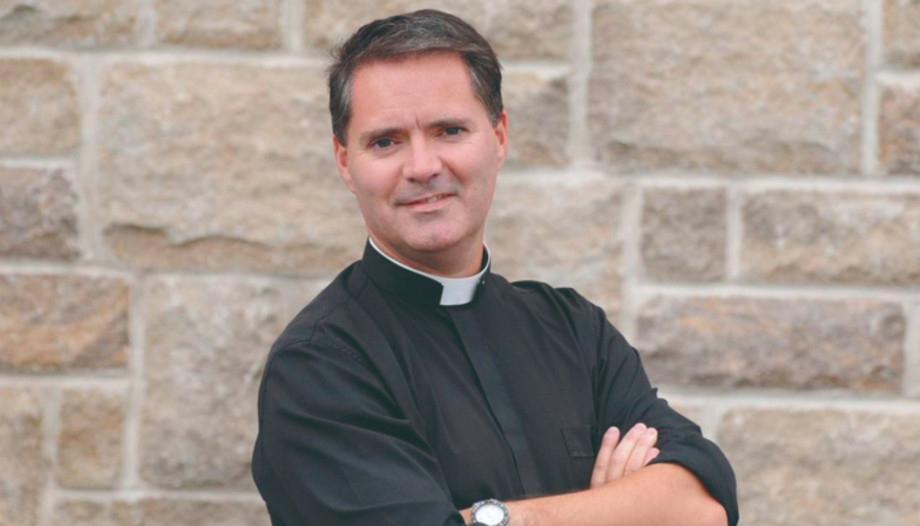James Mallon is a priest who carries out his pastoral work in Canada. For years, he has been promoting "Divine Renovation Ministry"(Divine Renewal), a ministry that aims to revive missionary work in parishes so that Catholics are fully aware of their call to evangelize.
This desire of James Mallon is also fulfilled in projects such as "AlphaThe "Alpha" courses are courses through which people can approach the Catholic faith through relaxed sessions. It is precisely in this context that Father Mallon spoke to Omnes during the SED (Salir, Evangelizar, Discipular) meeting organized by "Alpha" from July 5 to 7 in Alicante.
Like the sessions they organize, this "Alpha" meeting was a key element in the formation of all the participants in matters of faith, during days of shared discussions, meals and moments of formation.
The presence of figures like James Mallon shows the importance of having that "desire to evangelize," about which the priest speaks in this interview with Omnes. A desire, he explains, that is born naturally when a Catholic really encounters Jesus Christ, a moment in which he discovers that God himself is calling him to the mission.
The evangelizing renewal starts from the proposal to "go out". What do we lack in order to take the step of "going out"?
– You are talking about desire here. And I think that’s the litmus test of authentic full faith. Sometimes, the desire to evangelize is present, but we don’t do it because we are afraid, because we don’t know how to do it, we don’t have a tool to do it, we don’t know what to do. That's a very different thing. The Lord can handle fear, we all deal with fear. We can learn methods and tools, but the absence of desire, that’s where your question is getting at. The absence of desire is a bigger issue.
And I’d say there’s two primary reasons. If you have no desire for others to meet Jesus, I’d just ask this question: Have you met Him yourself? Who is the Jesus that you commune with? Who is the Jesus to whom you pray? To whom you listen? Do you encounter the Jesus of the Gospel? Because if you have an authentic relationship with Him, if you really know Him, how can you not have the desire? Sometimes our sinfulness, our brokenness and our struggles can lower the desire en our hearts, but it doesn’t remove it completely. I think the desire can be inflamed the Holy Spirit. The Holy Spirit destroys fear.
The mission is aimed at people in very different situations in relation to the faith. How can we reach those who know nothing about it, or those who are not even thinking of going to church?
– Sometimes the best of our parishes are saying to people on the outside to come on in. But if you think about it, to people who have no faith or no connection with the Church, we expect them to make the journey. The missionary is the one who makes the journey, the missionary is sent to seek and save the lost. But often, we expect those people, the other, to make the journey to us. But this is the opposite of what God has called us to do. Jesus ultimately is the primordial sent one. Jesus is the sent one, the original missionary who goes. And so we need to go.
It’s not about simply going, it’s a question of how we go. Jesus emptied Himself, and humbled Himself, he turned Himself obedient. And that’s the way to Jesus. We shouldn’t hold on to our lifestyles and preferences. We need to go in an incarnational way. Jesus came as one of us, He came amongst us. He pitched his tent amongst us. We need to go amongst the people who know nothing of the Gospel. learn to speak their language. Sometimes our evangelistic tools as Catholics presume too much.
You propose a way of acting that bears fruit in other places as well. Who benefits more, the parish or the individual?
– If evangelization is successful and fruitful, how can it not benefit both? My own experience is nothing more than life giving and incredible to experience that God has used me to bring people to Him. When a parish receives new believers who have met the Lord it benefits tremendously, so I think that fruit definitely benefits both.
Can the "divine renewal" you have put in place be applied in regions with a different mentality or approach than in your country, Canada?
– I’ve been blessed to travel all over the world and I take two things. One is that we are all very different, and number two, that we are all the same, specially as Catholics who have the same basic issues, the same basic struggles. I haven't yet met problems or struggles in any country that I do not in response say that is the exact same way in Canada.
Divine renovation is not a method, it is a model based on lived principles in a context. We are not going to tell you how to play these principles. But the three principles are simply number one the power of the Holy Spirit, number two the primacy of evangelization and number three the best of leadership.
No matter your context, if the Holy Spirit showed up in power, would that benefit your parish? If you actually made evangelization the most important thing in your parish, do you think it would benefit your parish? If the leadership of your parish improved, would that benefit your parish?
These three principles makes me think that Divine Renovation is applicable. Right now Divine Renovation ministry is working in 94 different countries and it seems that it’s bearing fruit.








